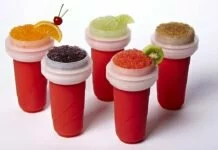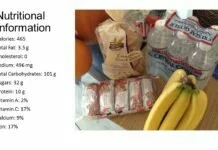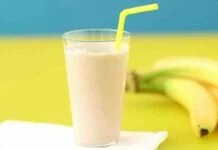We are all aware that the breakfast cereal is the first meal of the day and that it mainly consist of grains that have been processed. It will interest us to know the cereal nutrition facts for health reasons.
Serving
In order to work out the cereal nutrition facts, we are going to look at a cup of cereal which on average will be around 81g.
Calories
Usually, the calories are the ones to consider first and in this case, we expect to have a high amount of calories. It does not disappoint because this just one cup will supply you with a whopping 307 calories.
Total fat
The cereals do contain seo significant amount of fat and in this case, the total fat is 5g which represents 5% of the daily value. It is important to point out the fact that from the 5g, there are saturated, unsaturated and the polyunsaturated fats to contend with. For the cereal nutrition facts, the saturated fats stand at 0.g or 4% of the daily value. The polyunsaturated one is given as 1.9 whilst the polyunsaturated fat is 1.6g. There are no transfats in this breakfast meal, something that is commendable by any standard.
Cholesterol
The complete absence of the cholesterol in the cereal is quite something as it is given as 0mg or 0% of the daily value. This compound is highly harmful to the body as it is the bad fat which ends up being lodged into the arteries, thereby blocking them.
Sodium is part of the cereal nutrition facts but as you will realize, the 5mg is a 0% of the daily value. Potassium is high though, at 293mg and representing 8% of the daily value.
The cereals are supposed to contain high amounts if carbs and true enough, this one cup alone will supply you with a whopping 55g or 18% of the daily value. Out of the total carbs, you will have 8g f dietary fiber. This is the same as 32% of the daily value. You need a lot of fibber in the body in the body and cereals have plenty of it. Sugar is much lower at only 0.8g.
Proteins
You need protein in the cereal and the 11g or22% found in it is quite sufficient to start you off for the day.
Vitamins
There are plenty of vitamins and minerals which you will enjoy from this just one cup. To start with, you will have calcium at 4% of the daily value, iron at 18% and vitamin B-6 at 5%. Magnesium is the highest at 28%.
It is important to point out at this point that the above information is based on a diet of 2000 calories. This ideally means that you cannot completely rely in this information. The dietary needs of an individual are bound to change and therefore not standard across the board. Gender also affects the accuracy because men are supposed to consume more than women when it comes to the issue of calories.




















